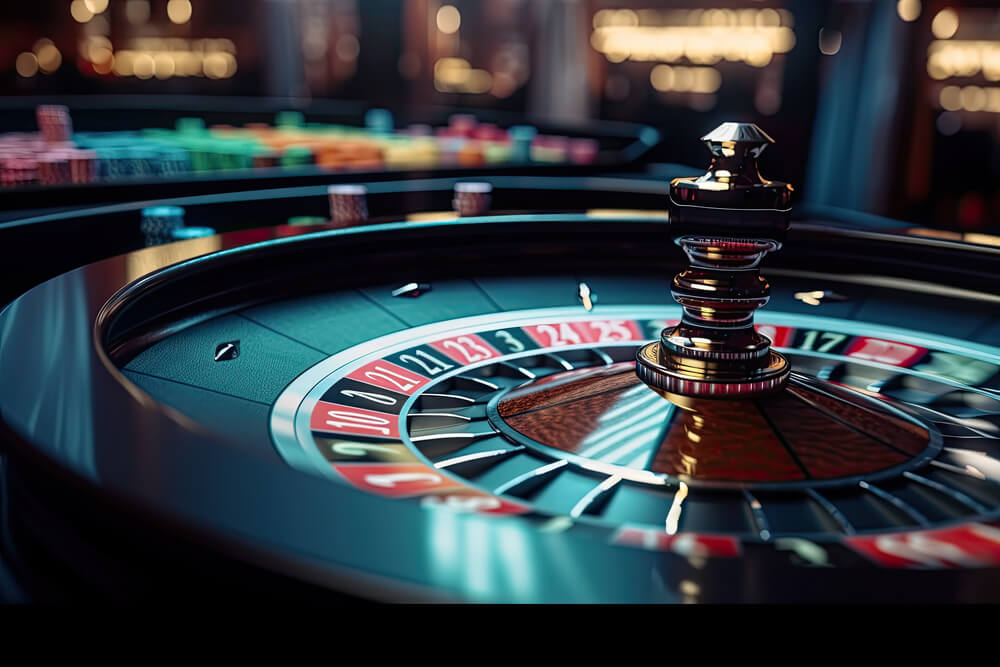
In the vibrant realm of gambling halls, where the atmosphere pulses with excitement and the clattering of tokens permeates the space, the role of a game dealer is both essential and captivating. Each day, these experienced experts step into a world where fortune and tactics converge, guiding players through the highs and lows of their chosen casino titles. From card games like 21 and texas hold ’em to the revolving wheels of the roulette table, dealers manage the gameplay while making sure that each game operates seamlessly and honestly.
As the day breaks on another hectic day, a casino game dealer gets ready to dive in this dynamic environment. Their responsibilities extend beyond just dealing the cards or turning a roulette wheel; they are also performers, customer service representatives, and guardians of the rules. Each workday brings new challenges and experiences, making every day distinct in the life of a dealer. This behind-the-scenes look will explore the daily routine of a casino game dealer, highlighting the skills and insights that make this career both exciting and rewarding.
The Role of a Gambling Game Dealer
A gambling table dealer is at the core of the gambling experience, managing the progress of the game while making sure that players are engaged and enjoying themselves. Their main responsibility is to oversee the game, which involves distributing cards, rotating the wheel, or managing the chips, depending on the type of game being played. vn882025 Croupiers must have a thorough understanding of the rules and regulations governing each game, while also upholding a welcoming and welcoming demeanor to enhance the gaming atmosphere.
In addition to managing the play, croupiers must also monitor on the players and the surroundings around the game. This includes monitoring for any signs of cheating, ensuring that everyone is following the guidelines, and resolving any disputes that may arise among players. Effective communication skills are essential, as dealers often provide explanations about the game’s mechanics and offer assistance to those who may be new to casino games.
Moreover, a dealer’s role extends past just the mechanical aspects of the play. They play a key part in creating an immersive experience for the players. This requires establishing a rapport with patrons, being attentive to their wants, and often injecting an element of fun into the play. It’s this combination of skill, vigilance, and people skills that makes the role of a gambling game croupier both challenging and fulfilling in the dynamic world of casino games.
Daily Responsibilities and Challenges
One of the primary responsibilities of a casino game dealer is to manage the various games offered at their table, guaranteeing a smooth and pleasant experience for players. Dealers must be proficient at dealing cards, handling chips, and maintaining the flow of the game. This calls for a keen understanding of the regulations of each game, from blackjack to roulette, and the ability to address players’ questions while maintaining the game moving. Attention to precision is crucial, as dealers must monitor bets, pay out winnings accurately, and watch for any cheating or discrepancies at the table.
In addition to managing the game per se, dealers encounter challenges such as dealing with difficult players. The casino environment can be stressful, particularly during high-stakes games, and a dealer must remain calm and maintain professionalism at all times. They need strong interpersonal skills to navigate interactions with players who may be frustrated about losses or dissatisfied with the game’s speed. Navigating these situations delicately is important in ensuring a positive atmosphere on the casino floor.
Another significant responsibility is upholding the integrity of the game. Dealers must be vigilant and attentive, watching for any signs of player cooperation or cheating among players. This entails not only a strong knowledge of the games but also an awareness of player psychology. They must also follow the casino’s regulations and procedures, taking part in regular training sessions to keep updated on rules and protocols. Balancing these responsibilities while providing excellent customer service is what makes the role both difficult and fulfilling for a dealer in a casino.
Attributes and Qualities for Success
A successful casino game dealer must have superior communication skills. This includes not only the ability to effectively explain game rules and procedures to players but also the capacity to engage with them in a cordial and competent manner. Fostering rapport with patrons can enhance the gaming experience and promote repeat visits to the casino. Strong communication enables dealers to manage tables efficiently while ensuring that players feel valued.
Moreover, robust mathematical skills are essential for a dealer. Quick arithmetic are often required to keep track of bets, payouts, and game outcomes in real-time. A dealer’s ability to perform these numerical tasks accurately and swiftly contributes to the overall efficiency of the game. This skill helps in maintaining the flow of play and in minimizing disputes or misunderstandings with players, which is crucial in a fast-paced casino environment.
Lastly, an ideal casino game dealer should exhibit integrity and professionalism at all times. Trust is a vital component of the gaming experience, and players must feel secure that the games are conducted fairly and transparently. A dealer’s devotion to upholding high ethical standards fosters a welcoming atmosphere at the table and enhances the casino’s reputation. Being dependable in behavior ensures that dealers leave a enduring impression on guests, which can lead to a dedicated customer base.